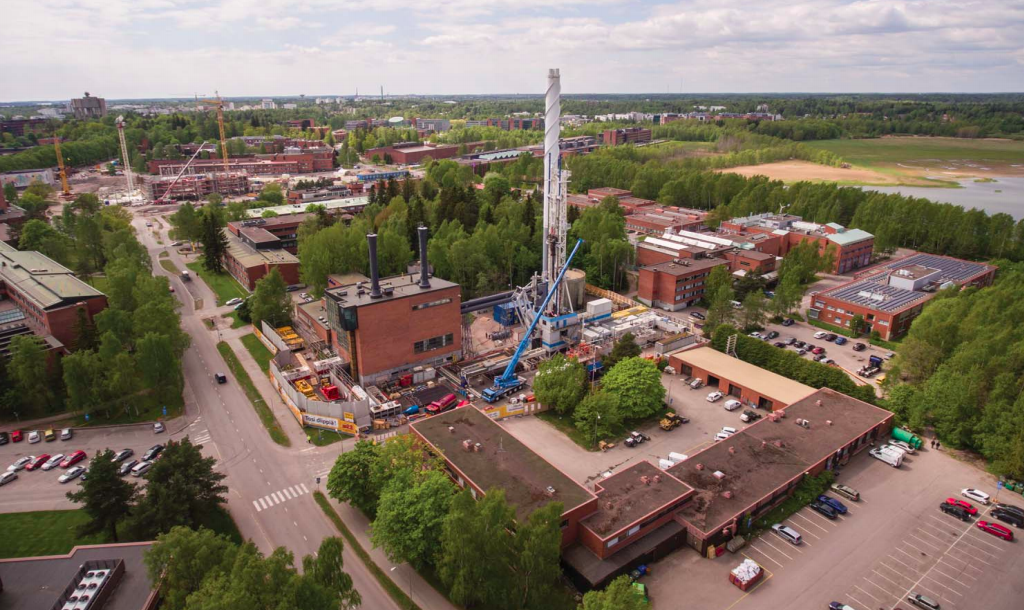 Drilling rig on project site in Otaniemi, Finland (source: St1)
Drilling rig on project site in Otaniemi, Finland (source: St1)The project, called “KI Bohrer” (“AI Drill”), has been funded with EUR 670,000 by the Federal Ministry of Education and Research. It is expected to run until the end of 2026.
Drilling operations, while not necessarily louder than other large-scale projects, typically need to continue through the night to increase efficiency and cost-effectivity. Thus, the impact of noise on nearby communities and compliance with legal noise limits need to be considered during project planning. This is currently done through a combination of different measures, such as the the continuous monitoring of sound emissions, the optimization of construction site logistics by scheduling loud activities to certain times of the day, or active noise reduction through the manual selection of control parameters for the drilling.
“In this way, we want to increase the acceptance of geothermal energy projects and also their profitability. Both improvements could make a significant contribution to the further expansion of geothermal energy and thus to achieving the overarching climate goals,” says IMLA and project manager Prof. Janis Keuper.
The new approach being proposed by the study is to optimize drilling operations to minimize noise using AI. The first phase of the study will involve collecting data from the drilling operations of Herrenknecht Vertical in several major European cities. The AI will then be trained using this data so that it can later advise drilling engineers on the expected noise levels given a set of drilling parameters.
“We have been developing innovations for efficient, safe geothermal drilling for almost 20 years. By using AI, we are consistently pursuing this goal and are excited about the research results,” emphasizes Ulrich Hahne, Managing Director of Herrenknecht Vertical GmbH.